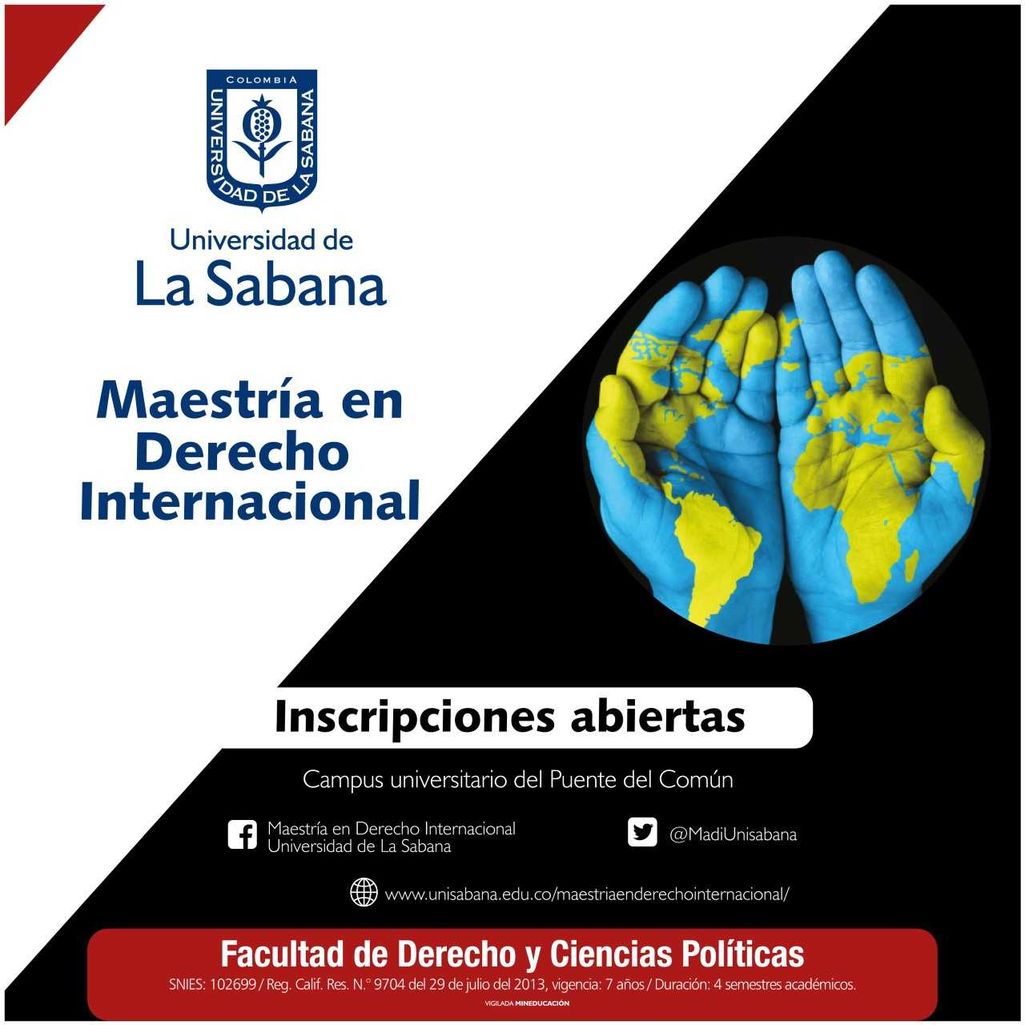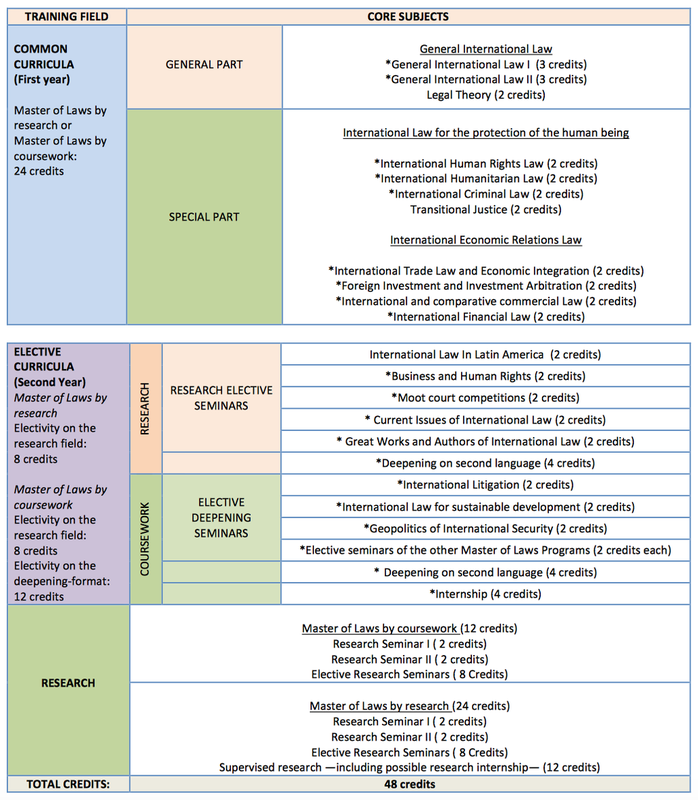
Master in International Law
It is conceived as an integrated approach of international law that merges interdisciplinary, contextual and humanistic issues. The Master of International Law is aimed at those who wish to be trained as internationalists with a humanistic, holistic and contextualized viewpoint of the International Law, enabling them to respond suitably to the requirements of complex social problems that demand legal solutions related to this domain of knowledge.
The Master is considered as an academic setting for educating a school that provides a Latin American perspective to the International Law. With this vision, the Program offers a comprehensive study of general International Law foundations, as well as the different branches of contemporary international law –especially those dedicated to protecting the human person, and the ones dedicated to international economic relations– encouraging an integrated, contextualized and interdisciplinary perspective.
Within this legal framework, the Master aims to train highly qualified professionals, renowned for their ethical integrity, and their analytical and creative ability to respond to social problems in context with the tools provided by contemporary International Law, as well as recognized for their trained contribution to the international law development.
At present, it is clear that the International Law study is increasingly significant for students of Law and related fields who are being trained to practice their professions under a law order where International Law is applied transversely almost without exception to all branches of Law. Therefore, it is urgently required to have responsible professionals who possess a strong sense of social projection and manage flawless techniques to provide solutions for the serious problems that afflict nations, which are now essentially shaped by the international guidelines and commitments.
The Latin American region, and the overall international community, is facing political, economic and legal major changes that will undoubtedly open up a space for professionals trained in International Law to present viable, rigorous and ethical solutions for the new challenges that accompany these modifications. The dynamics and conflicts experienced by democracies in the region, the FTAs signing and implementing processes, the integrationist processes and heated debates about structural reforms of the inter-American system for the protection of human rights, among others, require skillful professionals to address the current regional needs.
GRANTED DEGREE
Master in International Law
CODE SNIES
Code in the Colombian National Data System of Higher Education (SNIES, Spanish acronym) No. 102699 Higher education institution subject to inspection and supervision by the National Education Ministry
QUALIFIED REGISTRY
Resolution No. 9704 issued on July 29th of 2013
ACADEMIC CREDITS
48 credits
DURATION
The Master is designed to be pursued in 4 semesters (two years).
FORMAT
The Program is offered in deepening and research formats. The Master offers a mixed mode of study that is oriented both, towards deepening on International Law and towards the development of research in this area. A major challenge of the Program is to present research education, not as an exclusive goal of those who want to develop as scholars but as a powerful value added for the professional interested in any of the occupational fields for which the Program educates: consultancy, advisory, litigation or leadership on issues of International Law. For this reason, the development of research skills is core element in the two formats offered by this Program.
The Master’s formats are taught on a week per month with nine hours sessions on Wednesday, Thursday, Friday and Saturday. Some lessons or modules may be held by visiting professors so they may be scheduled sporadically at different times.
Admission is yearly based.
PROGRAM MISSION & PROFILE
PROGRAM MISSION
This Master seeks to consolidate a school of thought that brings a Latin American vision to the International Law and, to that extent, promotes the institution to be a national and regional leader among the academic community dedicated to the study of International Law.
APPLICANT PROFILE
The audience to which the Program is targeted has the following characteristics:
a. Professionals of Law and other related sciences as International Relations, International Business and Political Science, from Colombia (different cities) and other countries in the region.
b. Applicants must demonstrate an upper intermediate level of English to enter the program.
c. Applicants must have good academic record at major level.
d. Applicants must attend an admission interview, and submit a personal statement with the reasons why they want to enter the Master plus two professional recommendation letters. e. Even though professional experience is not a requirement for admission, it will be highly valued in the selection process.
OCCUPACIONAL PROFILE
The graduate Master in International Law may serve as lawyer, manager or advisor in private companies, public entities, consulting firms, international organizations, non-governmental organizations, and entities for inspection, monitoring and control as well as in the judiciary field. Similarly, the graduate Master with emphasis on research will be prepared to continue doctoral studies, pursue a scholar professional career, carry out consultancies and serve as professor and researcher in International Law.
GRADUATE MASTER PROFILE
The graduate Master trained at La Sabana University excels for being a highly qualified professional who operates comfortably within the general framework of International Law, as well as in specific areas of International Law for Protecting the Individual and the Law of Economic International Relations. On this basis, the graduate Master proposes diverse approaches for integrated, contextualized and interdisciplinary analysis that allow him/herself recognition in the field due to his/her professional strength, ethical integrity and ability to bring a Latin American perspective to International Law.

Download the curriculum of the Master in International Law here .

